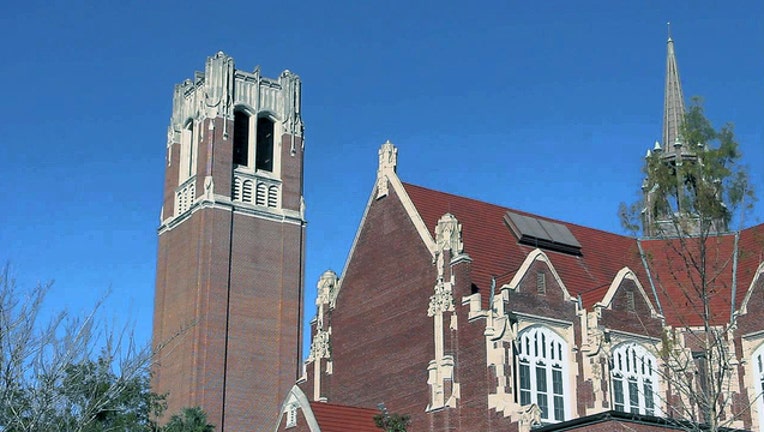Florida universities weigh options for fall semester

Century Tower at the University of Florida campus in Gainesville, Florida. [Photo courtesy: UF]
TALLAHASSEE, Fla. - Days before the coronavirus pandemic shut down the University of Florida campus in March, Kaelyn Cassidy knew she wanted to take some hands-on classes in the fall semester, so she went ahead and registered for them.
“The pandemic had started, but it was before I had any idea that it would get this bad,” Cassidy said Thursday.
Her selections for fall include a class that will teach her how to use audio, video, photos and data for storytelling as she pursues a career in journalism. The professor who teaches the multimedia class is supposed to be really good, she said.
“I don’t feel like this is a class I would absolutely have to drop if things stayed online … but I would probably try to drop it because I don’t want to miss out on the opportunity to get that training in person,” Cassidy, who is going into her junior year, said.
As universities game out plans for dealing with the coronavirus, Cassidy is one of tens of thousands of students throughout the state facing uncertainty about whether they will be able to take classes in person this fall or whether they will learn remotely.
Many universities are considering keeping at least some instruction online. But because plans are not finalized, students and faculty members are hanging on the answers.
Universities are looking at several different scenarios, including holding some classes in person and others online, pushing back the first day of classes, expansive testing for the virus and curtailing the available space on campus for in-person classes to abide by social distancing guidelines.
At Florida State University, plans for the fall have not been solidified. But on Monday, FSU Provost Sally E. McRorie told faculty members in an email that it is likely the school will only offer in-person courses that cannot be done remotely.
“Some labs and experiential courses that require special equipment or environment or work done in small groups, will be offered FTF (face-to-face),” McRorie wrote. “Most of our courses will need to be Distance Learning.Remote and be synchronous, asynchronous, or both.”
Students have already registered for classes as FSU figures out the list of courses that will be taught face-to-face.
“Again, my team and I are working with your deans and chairs to help decide first steps in this revision of course offerings, which will literally number tens of thousands. Students will need time to adjust schedules as well so we don’t want to wait too long,” McRorie said in the letter to faculty members.
At a time when social distancing is key to halting the spread of the highly contagious virus, McRorie said the university “certainly will be hampered by challenges of space.”
“Social distancing requirements leave us with about 25 percent of usable academic space at any one time. We will need to clear as many spaces as possible so we can begin to figure out where and when we can schedule the FTF classes,” she wrote.
Other universities also are working on blueprints for how to return to campus.
At the University of Florida, plans for the fall semester are expected to be announced in mid-July.
The university has already decided to push back its first day of instruction from Aug. 24 to Aug. 31 to allow more time to prepare for the return of students and faculty members, Provost Joe Glover wrote to employees in a May 1 email.
“While it will be some time until our campus returns to a more normal status, we will soon be taking the first steps in that direction, guided by the world-class physicians and epidemiologists at UF Health," Glover wrote.
University of South Florida President Steven Currall last week said the university will likely keep some instruction online but said the institution has “every intention” of resuming face-to-face instruction and some activities during the fall semester, with adjustments.
Some of the extra precautions would include a requirement for people to wear face masks, limiting the number of people who can gather in areas, bolstering cleaning efforts and “leveraging available testing.”
Extensive testing for COVID-19, the illness caused by the coronavirus, is expected to be part of plans for students to safely return to campuses.
University of Florida officials, for example, said last month they are mulling whether to test 500 to 1,000 students a day for COVID-19 as the school reopens in the fall.
Any university plans will involve “data-driven efforts to rapidly test” to locate and isolate people with COVID-19, according to Steve Orlando, a spokesman for the Gainesville school.
McRorie on Monday told faculty members that Florida State will need to do extensive testing and tracking “in the coming months and likely years.”
She also said the university will soon come out with procedures for identifying faculty members who may be at-risk of contracting the virus, adding that remote instruction should help them do their jobs safely.
The News Service of Florida contributed to this report.

